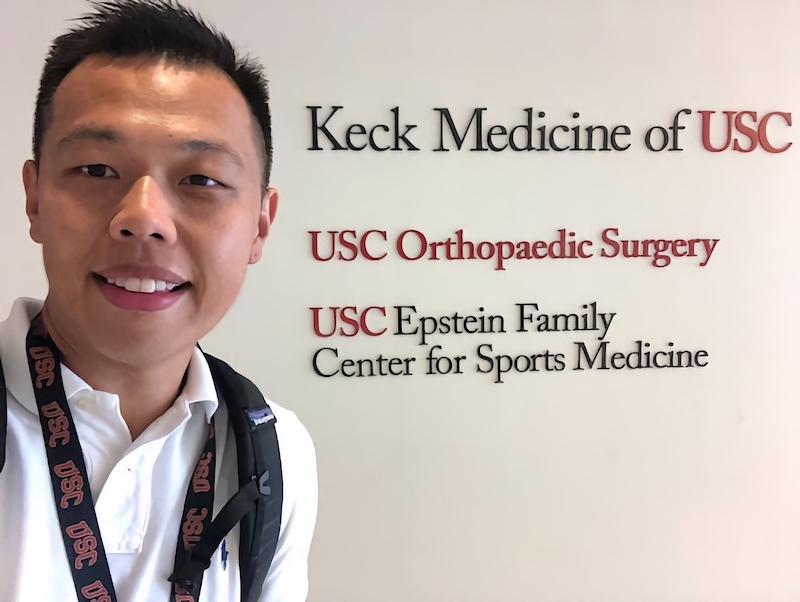Student Blog
International
Celebrating Lunar New Year 2022! ⟩
February 15, 2022, by Global Initiatives Team
Diversity International
By Yiyang (Sunny) Fang, PhD student, OTD alumni, Bachelor’s to Master’s alumni
Editors Alison Chang and Vanessa ElShamy
Entry-Level Professional Master’s students
Having lived in the United States for 6 consecutive years since graduating from undergraduate school, celebrating the Lunar New Year in Los Angeles has been a big part of my life! Despite ongoing concerns around the COVID-19 pandemic, I was able to safely gather with my partner and several other friends at home to celebrate the holiday. We went to the local Chinese grocery store, 99 Ranch, and enjoyed home-made HOT POT! Hot pot is one of the most popular meals to have on New Year’s Eve because family members and friends get to gather around the circular boiling pot, cook, and share food as a group. Some of my favorite ingredients to cook in a hot pot include beef and lamb slices, meatballs, fish cakes, spam, rice cakes, potatoes, and a variety of leafy green vegetables. While gathering around the hot pot, we also watched the Chinese New Year Gala (春晚, pronounced as “Chun Wan” in Chinese), a special variety show for New Year’s Eve featuring singing, dancing, magic shows, and drama performances. For many Chinese families, watching the New Year Gala at the New Year’s Eve has become a beloved ritual.
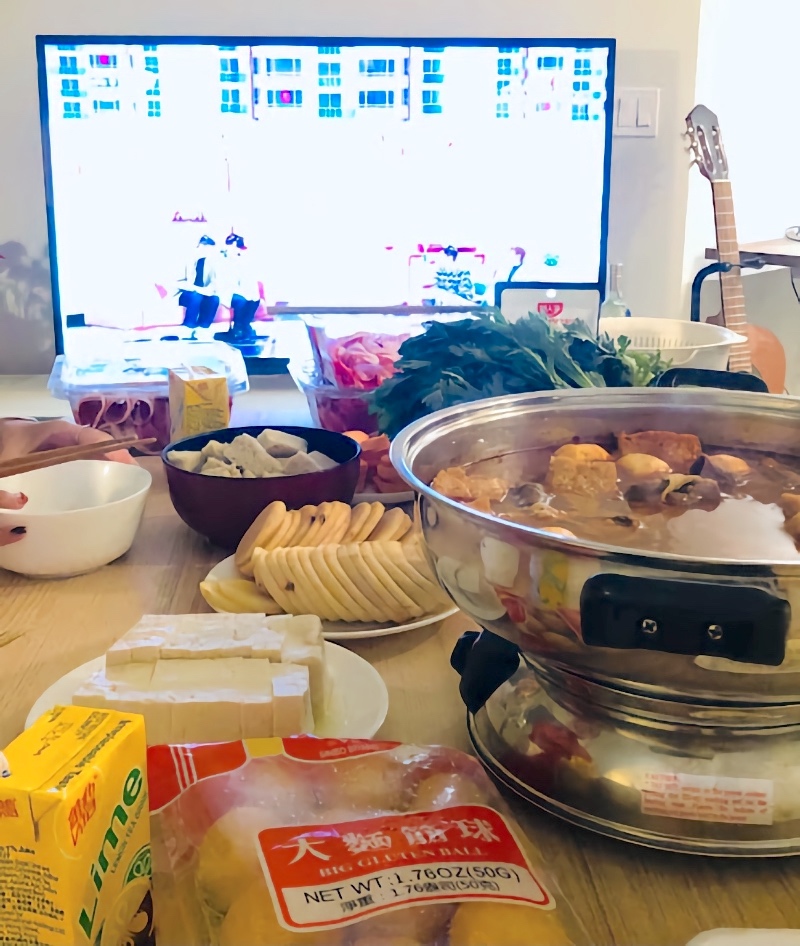
Celebrating Lunar New Year 2022 with home-made hot pot and Chinese New Year’s Gala.
To welcome the year of the Tiger, which is the 3rd of the 12 Chinese Zodiac animals (生肖 , pronounced as “Sheng Xiao”), I added decorations to both the front and back of the doors throughout my apartment. The mandarin orange plushies that I hang at the front of my door symbolize luck and fortune. The Spring Couplets on the back of my door mean “good luck everyday” and “happy everyday.” Having these decorations at home has been a tradition for not only myself, but also my family back in China. The red ornaments create a warm and festive vibe for the important holiday and hold our most genuine wish: that the new year will be a good and prosperous one. I am grateful that I was able to celebrate the Lunar New Year with my friends here in LA in a very meaningful way. I hope that the year of 2022 will bring everyone more happiness, blessings, and good health!!!
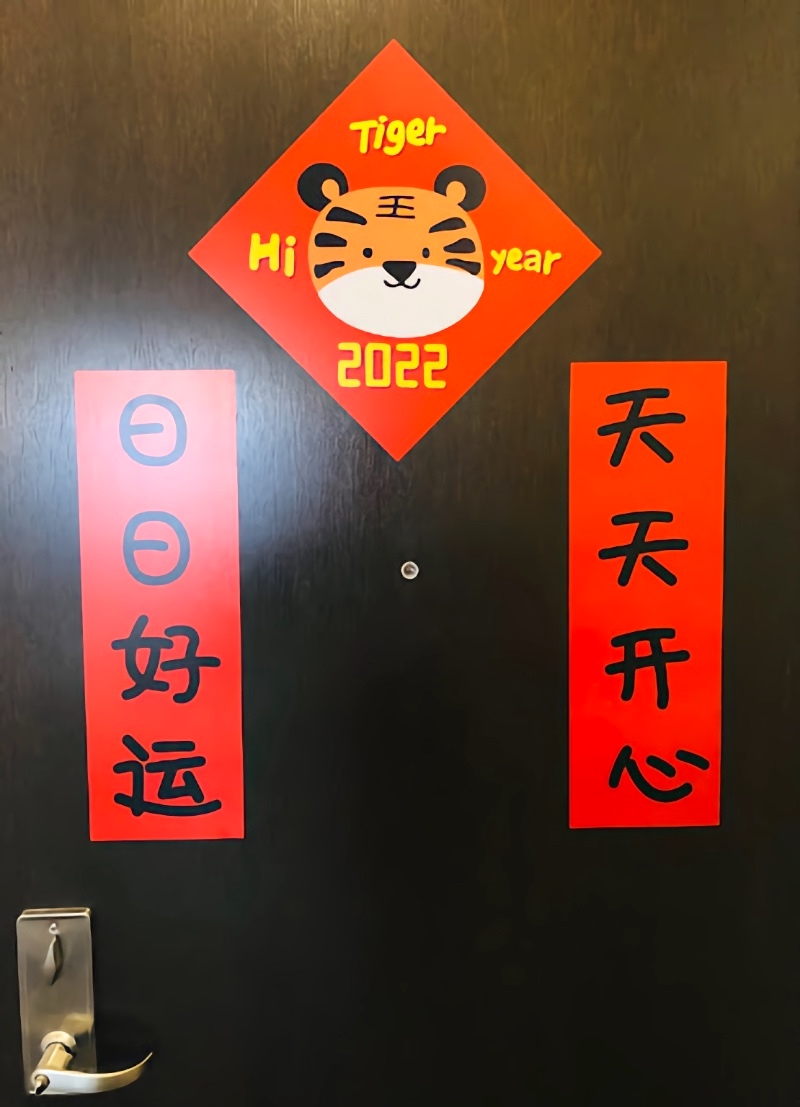
Lunar New Year decorations on the backside of the door — spring festival couplets.
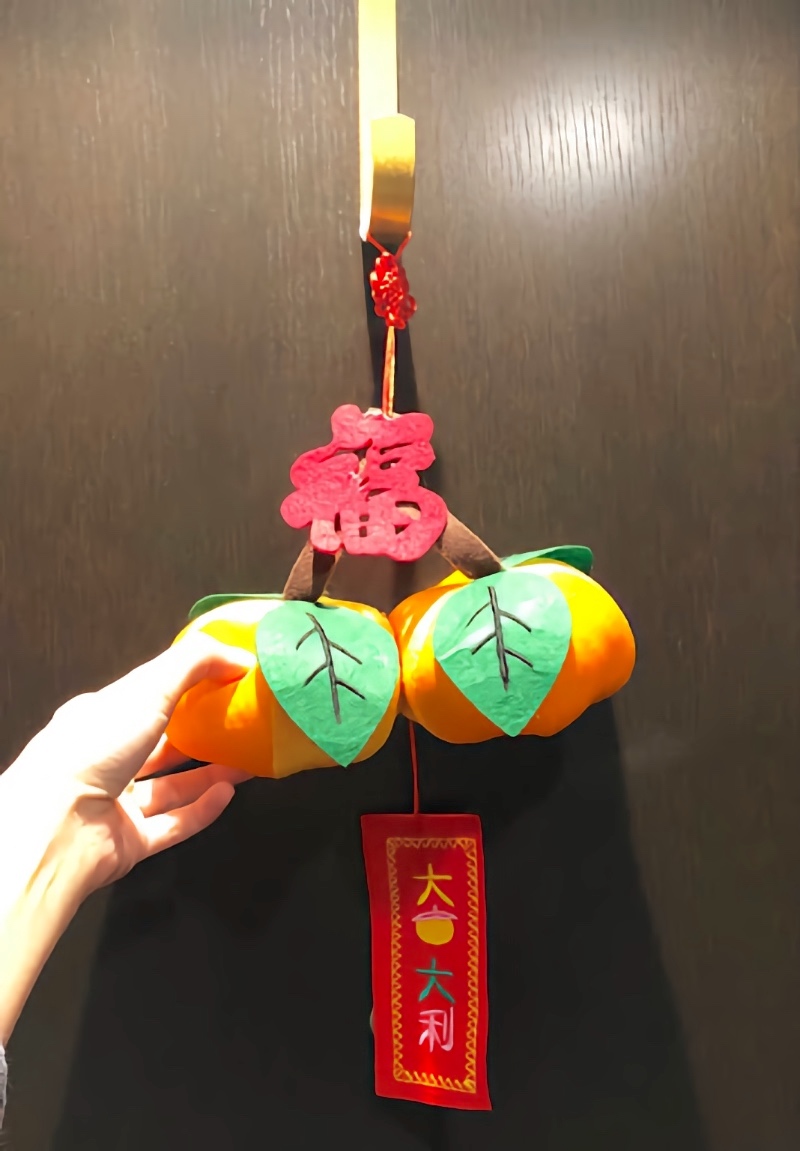
Lunar New Year decorations at the front of the door — mandarin orange plushies.
⋯
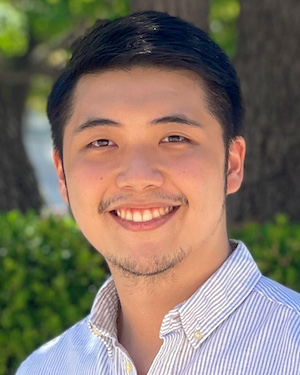
Taking That Leap of Faith ⟩
February 11, 2022, by Marvyn
Admissions International Life Hacks Living in LA
This time last year, I took a leap of faith. I was contemplating for such a long time if I were to apply for the Post-Professional Master’s program or not. It took me a couple of factors before I could hit the submit button. Allow me to elaborate.
A Master’s program is so daunting! Can I even do it??
If you have read my previous blog about my undergrad experience, I am not a perfect student. If anything, I’m faaaar from being perfect. Not that imperfection is unacceptable, but taking a program that is a Master’s level is A BIG DEAL. It’s a huge step further than a bachelor’s degree. My mind, when I was thinking about applying, was spinning in circles. I was asking over and over “Do you think you can handle the challenges?” “Are you capable to take on this huge step in your life??” AND A BUNCH MORE.
What helped me go through it is to reflect on my “WHY”. I knew that I wanted to learn more about occupational therapy, most specifically at the best university for the program. So, instead of thinking of the intimidation of a big dream like this coming to a reality, I focused on the goal. Eyes on the prize. I wanted to become more than what I am now, and that I am willing to go through all hoops and hurdles to get there. So ultimately, learning how “to let go and to believe in myself” is the best way to go. Trust me, you CAN do it.
What would my family and peers think of me just abandoning them for so long??
It varies from person to person, right? It’s true, I am privileged to say that my family is my best support system ever. Even though I knew that this is a very big dream for me to achieve, I am lucky enough to have a family that supports me in any of my dreams. The same can be said about my friends too! As much as I thought they would be disappointed in me, they all ended up being my biggest cheerleaders.
Believing in yourself is one thing but having someone else believe in you too helps a lot. Trust me when I say that support system doesn’t have to be high maintenance. You can have relationships in life that can propel you to do great things without holding you back. Stick with them and you’ll feel confident in taking such a huge endeavor such as this.
I’ve never lived outside my home country for this long, HOW CAN I SURVIVE?!
Living in a foreign country for a long period of time really is a game of survival. There’s really no way to sugarcoat it. But, I will let you in on a not-so-secret secret: It’s definitely do-able. I have had many anxiety-driven nights back at home thinking about things to prepare, anticipate, and worry about living in LA for so long. But once you find out where you will be staying and mapping out notable places to do essential stuff, you are pretty much set! If there’s any advice I can give you on this problem, it’s that: Once you set your feet on the ground, find as many people as possible, especially in the Chan community. You’ll find quickly that there are a bunch of people who can help you survive the LA grind. I mean, look at the last blog I wrote about things to do in LA! I wouldn’t have been able to do all that had I not have the friends I newly found throughout this journey!
Circling back, I definitely think these factors have been major themes that worry me before I hit the SUBMIT button in my application. But like I said, I took that leap of faith. I closed my eyes, took a deep breath, whispered a little prayer, and let my finger go heavy on my laptop’s trackpad. I feel the vibration on my finger signifying a click and the rest is history!
At the end of all this, I’m so glad I took that leap. I cannot express how thankful I am to myself for grasping the courage and going for it. It really takes some nerve to be able to trust the process and let Destiny do their work. It’s only a matter of time.
If you’re still contemplating or having any questions with your application process, you can always contact me (and my other co-ambassadors) at .(JavaScript must be enabled to view this email address).
⋯
Taking a leap of faith: transitioning from SOTI participant to a full-time OTD student ⟩
February 1, 2022, by Global Initiatives Team
Diversity Getting Involved International
By Serg Lam, Doctoral Candidate, SOTI alumni (2019)
Editors Michelle Plevack and Abraham Ramirez
Entry-Level Professional Master’s students
I always feel privileged to participate in my patients’ recovery journey. Having the opportunity to empower and restore patients back to their daily routine is definitely a joyful experience. Since I am an integral part of my patients’ recovery journey, I strive to learn different intervention strategies, and this is how my SOTI (USC’s Summer Occupational Therapy Immersion) story began.
During the SOTI program, my classmates and I visited many advanced occupational therapy practices. Out of these, ocean therapy was definitely a highlight for me. Ocean therapy utilizes surfing as a meaningful occupation to help individuals with PTSD and/or depression to overcome barriers and enhance their confidence. For example, maintaining good posture in big waves and swimming in the current provides an adverse scenario for individuals to safely “fight for their lives,” and enables them to develop healthy coping skills in adverse situations. The life skills they developed in therapy sessions could eventually transfer into their daily lives and allow them to manage challenges and stressors in real life. Upon reflection, Ocean therapy gave me the insight to develop my career goals. Besides being an occupational therapist in a psychiatric setting, I am also a Muay Thai coach/fighter. It has always been my dream to promote health and wellness for younger adults utilizing the sport I am fond of. Through training and coaching, I have seen positive transformations in many athletes. Overcoming barriers in training not only improves physical conditions in athletes, but it also empowers them to promote psychological resilience and to adapt to difficult situations in adulthood.
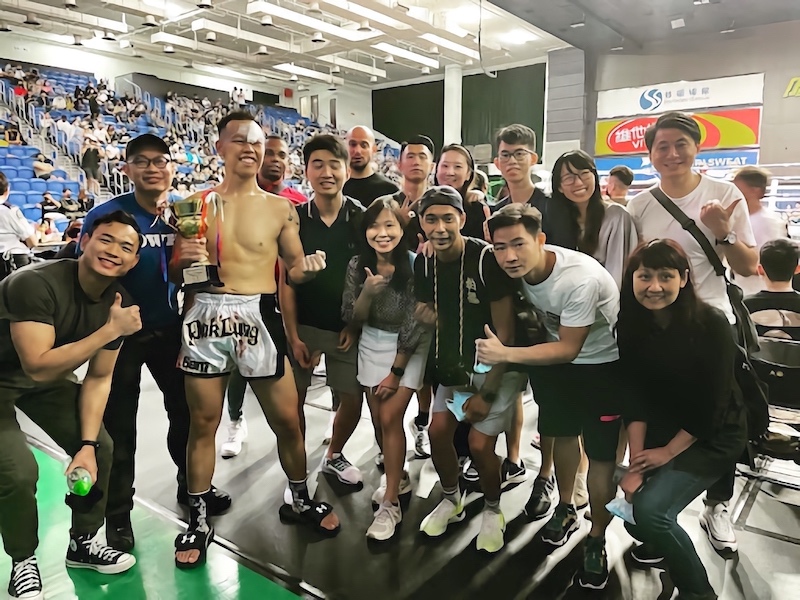
Hong Kong Muay Thai Championship 2021 at Southorn Stadium, Wan Chai.
Besides enriching therapists with advanced clinical knowledge in various settings, SOTI also promotes friendship and brings people with different nationalities together. Though we are therapists from other countries, with diverse backgrounds and age ranges, there was never a dull moment in class. My roommates Naoya and Andy have always supported me in the program. Trust and intimacy were formed as classmates had given me the nickname “Uncle Serg”, as I had been assigned a senior leader in class. The bond of friendship grew as we studied and explored beautiful California together.
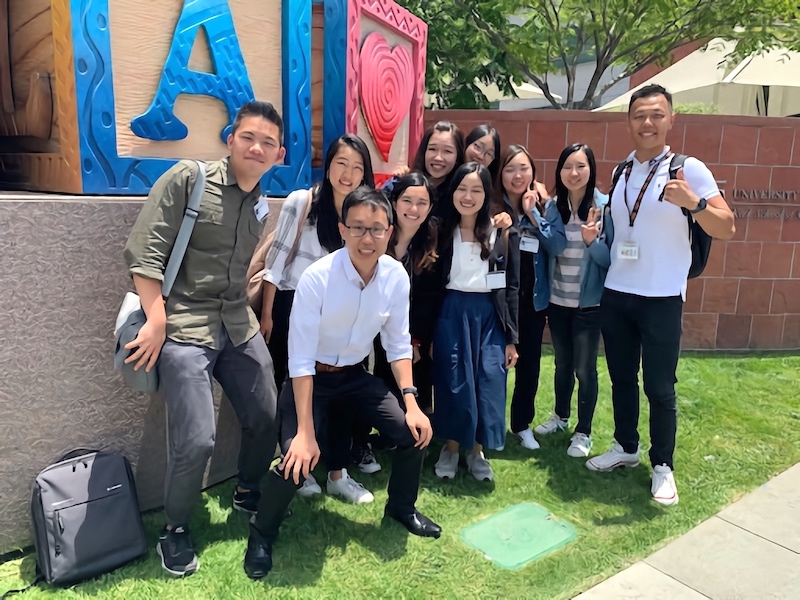
SOTI class visit to Children’s Hospital Los Angeles (CHLA).
“Uncle Serg” had a wonderful time in the SOTI program, and I realized it was never too late to start chasing my dreams. Before starting my OTD program, I worked in both in-patient and community psychiatric settings in Hong Kong. OT input is crucial in a psychiatric patient’s journey. Yet, I feel like there are limitations in my practice, and patients’ needs are not always met in the psychiatric unit, especially individuals with behavioral issues and sensory issues. So, I have decided to take a leap of faith and pursue further education for the above reasons. I have just started my OTD in Spring 2022 and am doing my residency in the Insp!re (Innovations in Neurodevelopmental Sensory Processing Research) lab for Dr. Baranek. Time to fight on!
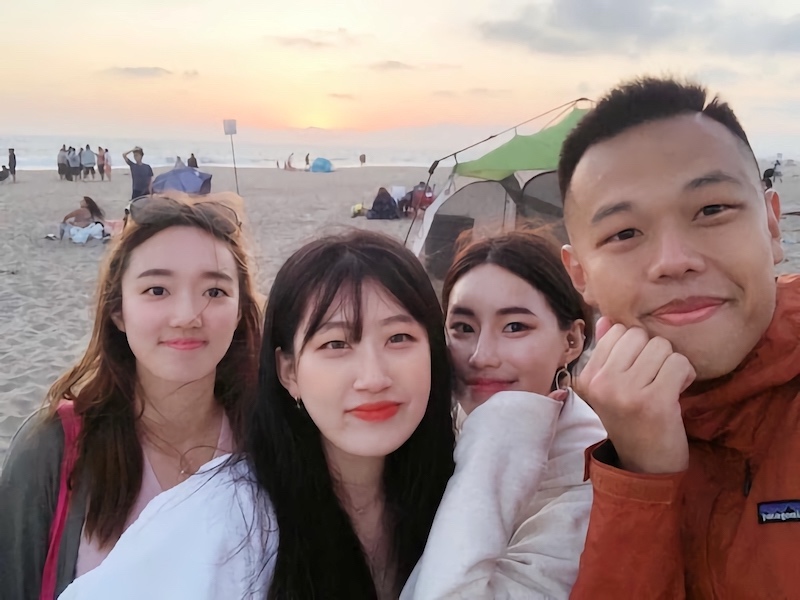
Beach day with my SOTI buddies in sunny California.
⋯

7 BEST Photos from my PP-MA Classmates ⟩
December 23, 2021, by Marvyn
Diversity International Living in LA
In light of the 7th day of Blog-mas, I decided to show off 7 of my wonderful classmates who make our class as unique as it could be. I am so honored to be part of their class, and I figured they needed to be highlighted as well. I asked them what their BEST photo is here in LA so far, and why they think they chose that photo. Check it out!
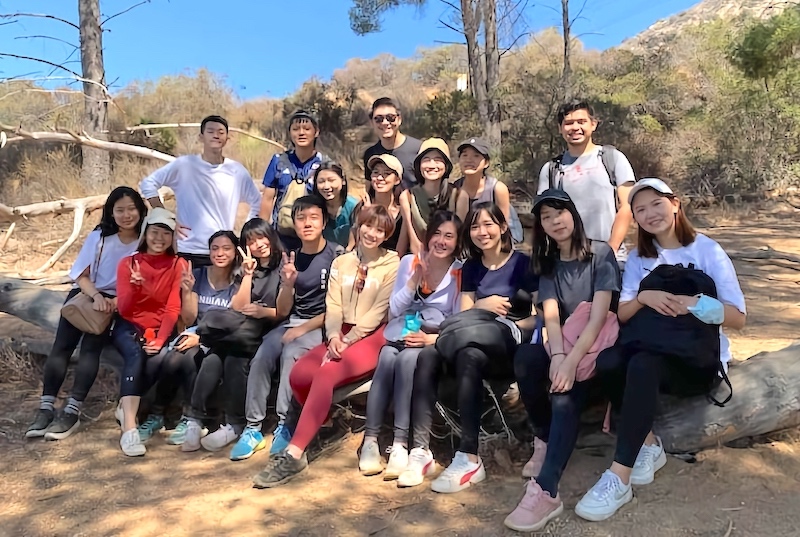
Cindy Teow: “I really enjoy nature, so hiking at Eaton Canyon with my classmates was the highlight of this season for me! They made hiking enjoyable though the hike was tougher than expected. The same could be said for this semester, their cheerful and helpful disposition made this semester manageable.”
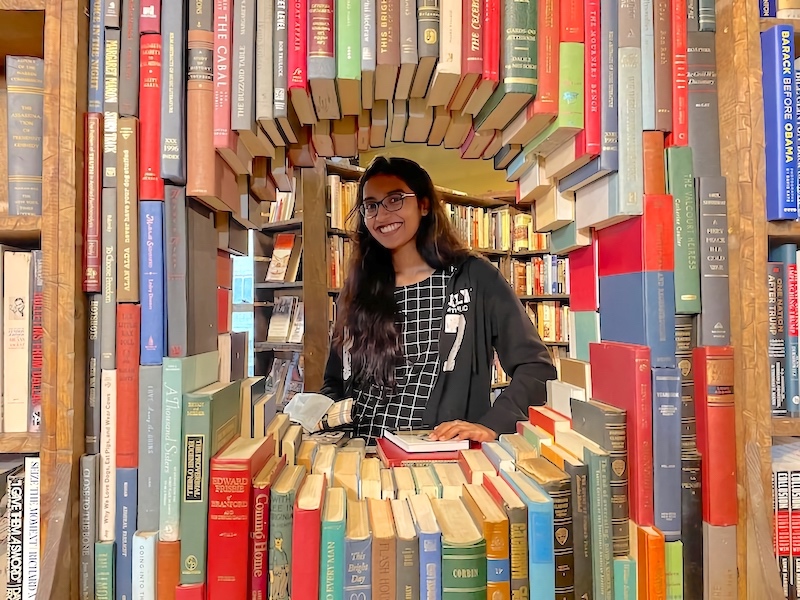
Nandita Raman: “This picture was taken at a place I recently visited place called ‘The Last Bookstore’. It is truly a paradise for book lovers like me. The atmosphere is so warm and cozy, and it brings out the magic of books. This is one of the best places I have been to in LA!”
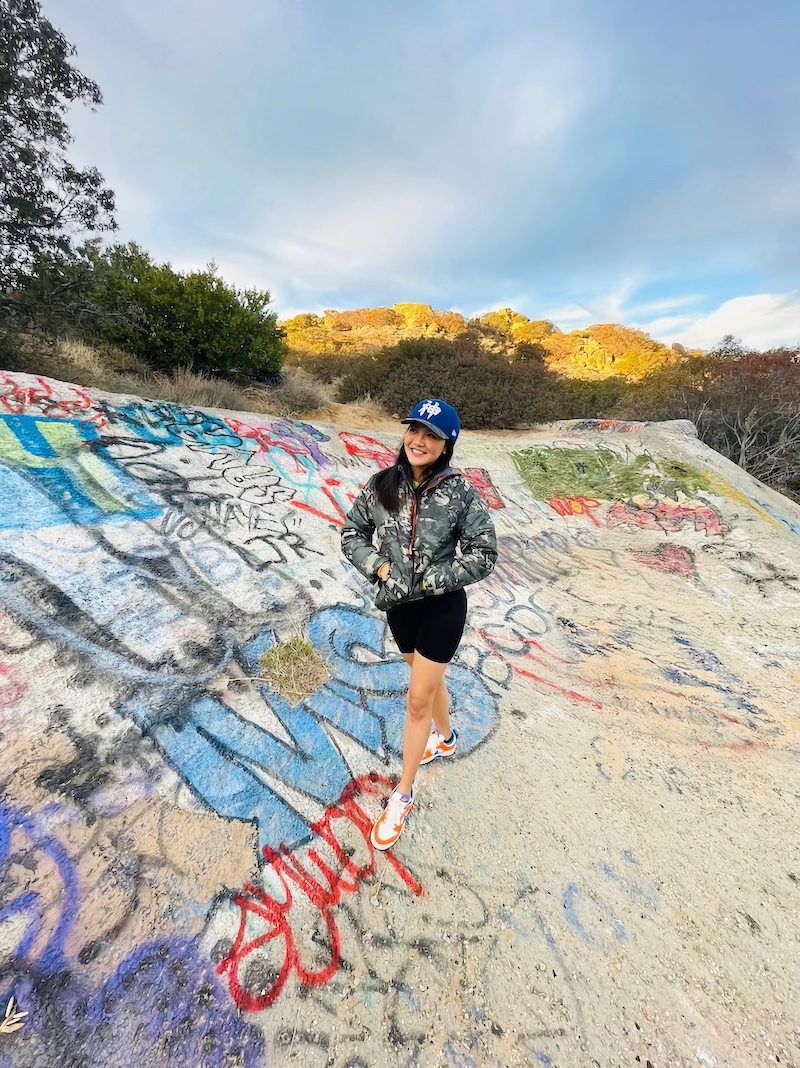
Tristenne Ocampo: “This photo captures what life has been as an international student in LA — so much life, art, and color! this applies to the food, places, and people I have encountered.”

Florence Yang: “Exploring nature, practicing yoga, and taking photos are all things that bring me joy and energy, and this photo encapsulated my most joyful moment. I took this photo while I was hiking through Switzer falls trail with my friends. I love how this trunk was lying beside the trail, which created the perfect spot for a split!”
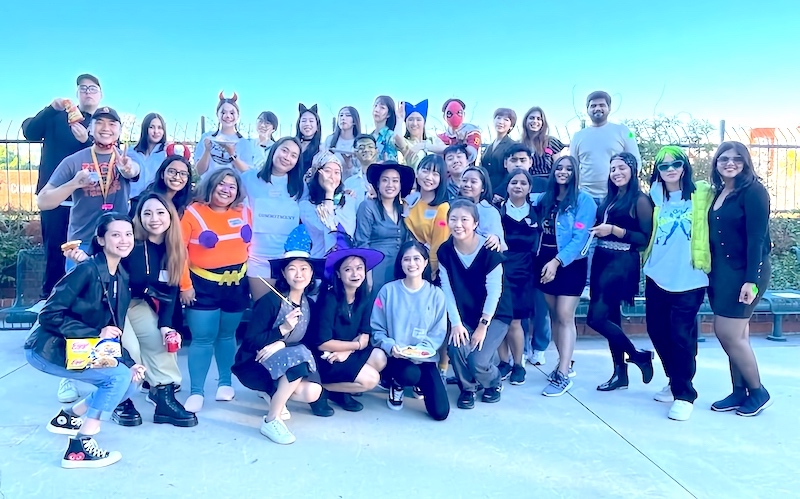
Godfrey Lok: “This photo is my personal best in MA-1. It was taken when we had an Halloween celebration event. All of our class dressed up and we were having so much fun in the patio! Could you tell what characters are we mimicking?”
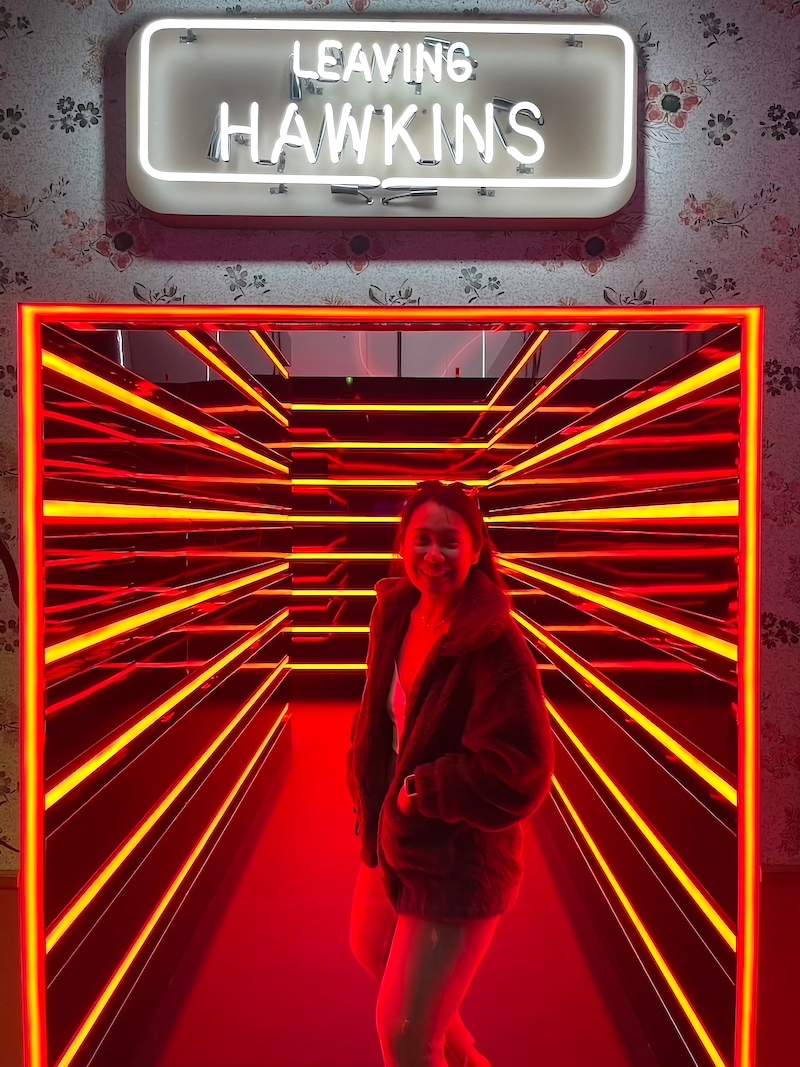
Vanessa Mesa: “This is my best photo because it reminds me of the good days that spontaneity can bring about. Saying yes to last minute events can sometimes turn out to be one of the bests I can look back to!”
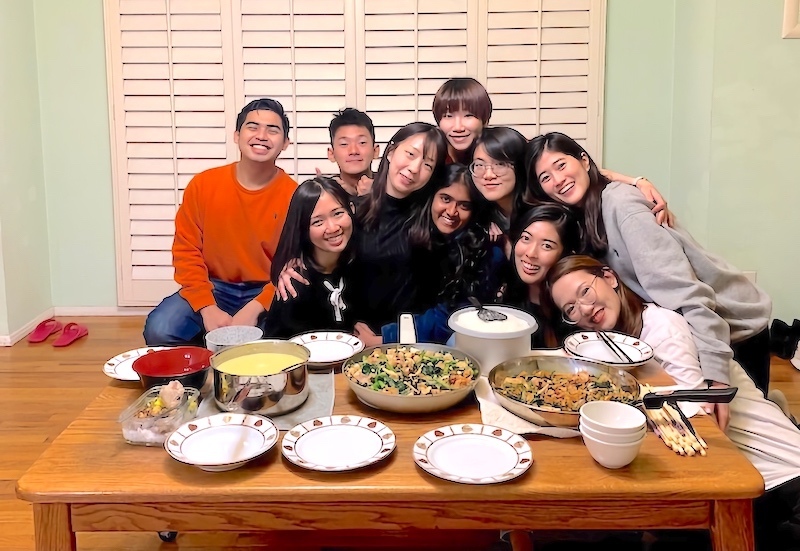
Jean Chen: “My new life in LA has become brighter because of getting to know new friends at USC. We could freely share our ups and downs together. Here we are enjoying a meal at my house.”
I would like to thank my classmates for participating in my blog! Living in LA has been a blast for us, international students, and I believe there will be much more adventures to be found along our journey.
⋯
My Experience with the Pen Pal Program ⟩
December 13, 2021, by Global Initiatives Team
International What are OS/OT?
By Abraham Ramirez, Entry-Level Professional Master’s student
Editors Alison Chang and Vanessa ElShamy
Entry-Level Professional Master’s students
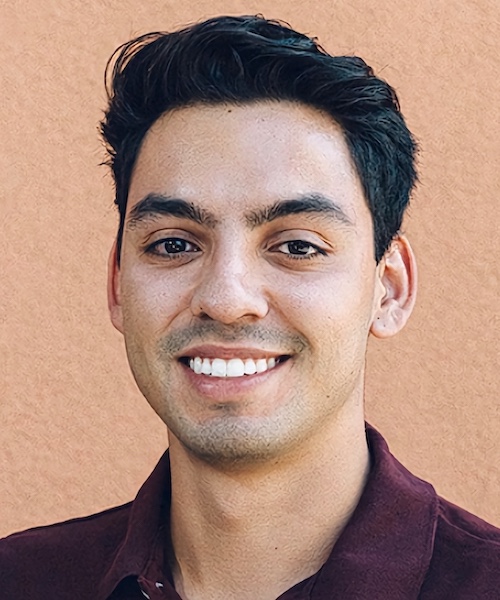
Abraham Ramirez
One of the meaningful projects that I’ve been involved in within Global Initiatives is the Pen Pal Program. I was lucky enough to be connected to two students in Colombia who were both in the same year at the Escuela Colombiana de Rehabilitacion. This was a great opportunity to learn about occupational therapy and its scope of practice in Colombia. My pen pals and I communicated in Spanish because it’s the most widely spoken language there.
What is the most memorable letter that you’ve received from your pen pal?
Even though the program has the word “pen” in the title, my pen pals and I decided to communicate through Instagram messenger via group chat, as well as Zoom when we found the time. Our group chat conversations revolved mostly around the OT profession in our respective countries. However, the most meaningful experience was communicating over Zoom. We talked a lot about differences in culture between Mexicans and Colombians, since I’m culturally Mexican. We also discussed nuances in Spanish and how the language has evolved in Colombia and Mexico. It was interesting to find the beauty in the uniqueness of our cultures, as some may make assumptions that countries in Latin America are all similar.
What is the best thing you have learned from your pen pal?
I learned about how OT education is different in Colombia compared to in the U.S. In Colombia, you currently only need a bachelor’s degree to practice as an OT. Additionally, from the way they explained their curriculum, it seemed like there’s an emphasis on hands-on approaches. I also like that they place emphasis on OT in the “sector laboral,” or “the workplace.” For example, one of my pen pals had a rotation at an airport where she completed ergonomic assessments for the personnel.
What message would you send to your pen pal right now if you had only 2-3 sentences to say it?
If I were to send a message to my pen pals right now, I would honestly just say that I appreciate their openness to friendship, even though there are hundreds of miles between us. It’s great to know that there’s people across the world that enjoy speaking with you.
⋯






